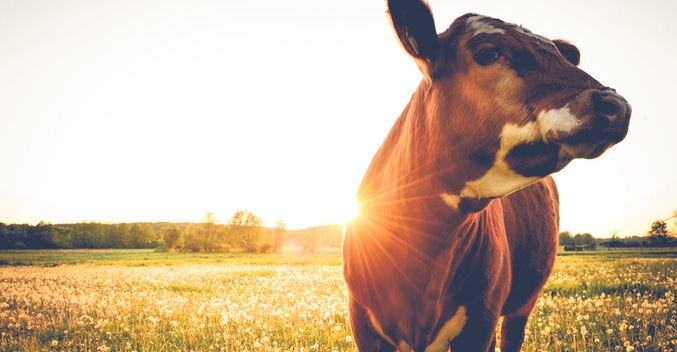5@5: Texas freeze leads to global plastic shortage | Seaweed isn't a silver bullet for cattle-related methane emissions
Each day at 5 p.m. we collect the five top food and supplement headlines of the day, making it easy for you to catch up on today's most important natural products industry news.
March 17, 2021

Texas freeze triggers global plastics shortage
Power outages in Texas last month triggered blackouts that led to chemical plant shutdowns, and this is now causing a global shortage of the raw materials needed to make plastic products. More than two dozen plants remain offline, and experts say it will likely be months before inventories recover and prices return to normal. Get the story at The Wall Street Journal.
Want carbon-neutral cows? Algae isn't the answer
Following several studies that showed an up to 80% reduction in methane emissions from cows given algae-infused feed, the seaweed market exploded with funding and media coverage. But the truth is that seaweed's benefits are far more limited here than we have been led to believe. Factoring in the time period cattle spend on feedlots before slaughter means even the most promising claims translate to an 8.8% reduction in overall emissions. Additionally, algae doesn't solve for emissions from manure or the fertilizer sprayed on their crops and grasses or the transport of the animals and later the meat. Wired reports.
Virginia becomes 4th state to ban cosmetic animal testing
Virginia has become the fourth state to ban cosmetic animal testing and sales of animal-tested cosmetics after Gov. Ralph Northam signed the Humane Cosmetics Act this week. A handful of other states including New Jersey, Maryland, Rhode Island, Hawaii and New York are expected to pass similar laws, and federal legislation is likely not far behind. Good Morning America has the scoop.
A breakdown of cell-based meat's big funding quarter
Investment activity has skyrocketed over the past year in the lab-grown meat segment. Some standout companies include $84.4 million in total for cell-cultured seafood startup BlueNalu, $96 million for Netherlands-based Mosa Meat and $43 million for Israeli cell-based chicken producer Future Meat. Head to The Spoon for the full list.
Does America have an overreliance on major meat companies?
Eight percent (or more) of the meat sold in America comes from one of four giant companies, which is what led to significant supply chain disruptions when these companies' plants shut down because of COVID-19 outbreaks. Federal grants that aimed to give smaller processors the ability to expand weren't enough to keep shelves stocked last year, and now antitrust advocates say these smaller producers need more attention and funding to be able to rival the likes of Tyson. Learn more at The Food Institute.
About the Author(s)
You May Also Like


